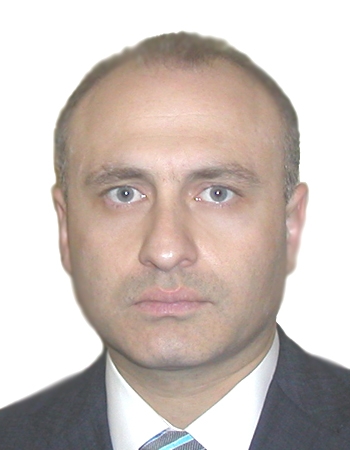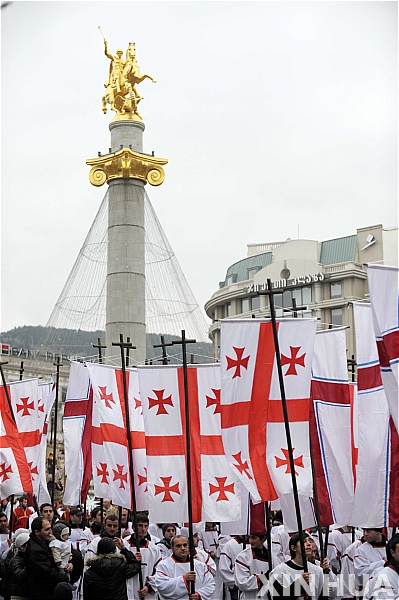
2016 Independence Day of Georgia

On May 26, Georgia celebrates its Independence Day, commemorating the adoption of the Act of Independence in 1918, which outlined the main principles of the nation’s democratic development and formed a Democratic Republic. After being incorporated into the Soviet Union, Georgia once again regained its independence on April 9, 1991. This year Georgia celebrates 25th Anniversary since the restoration of its independence.
Present-day Georgia is a dynamically developing democratic state. Continuous legislative and economic reforms brought the country a well-deserved image of one of the world’s successful reformers and allowed to eradicate corruption, minimize bureaucracy, improve living standards and create a business friendly environment.
According to the World Bank data Georgia is characterized as “one of the most open countries to foreign equity ownership as measured by the Investing Across Sectors indicators”. As research of world-wide known Heritage Foundation shows, Georgia is on the 3rd place among 178 countries in 2016 Trade Freedom Scores. Georgia remains at the leading position in the list of the safest countries in the world.
Georgia’s government is committed to continue on the path of reforms leading to economic growth and strengthening of the democratic institutions. While modernizing its own economy, Georgia takes an active part in regional and international economic projects aimed at developing infrastructure, interconnecting transport and energy networks, facilitating trade and investments.
Being a reliable partner, Georgia’s importance is gradually increasing as a key logistics and transit element of the Europe-Asia transport corridor, which significantly cuts the costs and duration of transportation of cargo from Asia to Europe. Following Georgia’s proposal at the UN General Assembly in 2014, the first Annual Silk Road Forum was held in Tbilisi in October 2015, where around 700 participants representing Governments and business circles discussed transport, energy and trade related issues. This initiative closely relates to President Park Geun-Hye’s “Eurasian initiative”, also aimed at development and interconnection of transport and energy systems. Therefore, Georgia welcomes and supports Korea’s intentions and is ready to cooperate in that direction.
 The main standing objective of both our internal and external policy remains the issue of territorial integrity. In August 2008, Russian military aggression resulted in occupation of the inalienable Georgian territories of Abkhazia and Tskhinvali region/South Ossetia. Though Georgia’s efforts to normalize its relations with Russia brought some results in terms of increased trade and renewed cultural ties, there is still no progress on the political and human rights issues. In fact, the situation is worsening on a daily basis. Russia conducts military drills in Georgia’s occupied territories and signs illegal treaties with their proxy regimes. Thus it attempts to legitimize the annexation, undermine Georgia’s sovereignty and territorial integrity, and threaten peace and stability in the whole Caucasus region. Our request is legitimate and firm: Russia should fulfill the 6-point Ceasefire Agreement of 2008, and withdraw its troops from Georgia’s occupied regions.
The main standing objective of both our internal and external policy remains the issue of territorial integrity. In August 2008, Russian military aggression resulted in occupation of the inalienable Georgian territories of Abkhazia and Tskhinvali region/South Ossetia. Though Georgia’s efforts to normalize its relations with Russia brought some results in terms of increased trade and renewed cultural ties, there is still no progress on the political and human rights issues. In fact, the situation is worsening on a daily basis. Russia conducts military drills in Georgia’s occupied territories and signs illegal treaties with their proxy regimes. Thus it attempts to legitimize the annexation, undermine Georgia’s sovereignty and territorial integrity, and threaten peace and stability in the whole Caucasus region. Our request is legitimate and firm: Russia should fulfill the 6-point Ceasefire Agreement of 2008, and withdraw its troops from Georgia’s occupied regions.
Georgia’s foreign policy priorities and the choice of its people remain resolute and clear – full integration into EU and NATO. The historic signature of the Association Agreement with the EU in 2014 marked an important milestone in the EU-Georgia relations and opened a qualitatively new phase in our cooperation. Through gradual establishment of European norms and standards, the Agreement sets our country on the course of political association and economic integration with the EU.
In this context, the Deep and Comprehensive Free Trade Area is particularly important as an integral part of the Association Agreement. Since September 2014, once DCFTA entered in force, Georgian export to the EU increased by 15% and in the long run, this will contribute to 4% GDP growth. It creates opportunities in the biggest and most stable common market, equally accessible by the Georgian and international business. Trade with the EU without tariffs and barriers, and the high level of investment security will further improve the business environment in Georgia.
At the end of 2015, the European Commission published its fourth and final progress report regarding Georgia’s implementation of the Visa Liberalization Action Plan that leads country to visa-free regime relations with Schengen Agreement member countries. Now Georgia awaits EU political decision, expected to be taken in the summer on visa-free regime for the Georgian nationals.
We also hope that our intensive cooperation with NATO will soon lead Georgia to a Membership Accession Plan. In 2015 NATO Training Center was opened in Georgia as a part of a package of measures to boost Georgia’s defense capabilities.
Georgia strives to diversify its economic and political partnerships, and to that end its interaction with the Republic of Korea is considered strategic. In the beginning of 2016 we further developed our bilateral legal framework by signing an agreement between Georgia and the Republic of Korea for the avoidance of double taxation.
Our economic and cultural ties are strengthening. Bilateral trade volume has increased significantly as well as the flow of Korean tourists to Georgia. A number of important large-scale infrastructure and energy projects in our country are being implemented by leading Korean corporations. A huge Korean investment, the construction of Nenskra HPP operated by the K-Water was launched in September last year. K-Water gave an impetus to other Korean companies to commence talks on their possible entry into the Georgian market. We hope that they will follow suit to invest in other sectors of Georgia’s industry.
In November 2015 the Georgian Embassy in Seoul hosted the exhibition dedicated to the Georgian unique scripts. We are proud of Georgian national dance ensemble “Khorumi” winning the Grand Prix of the Cheonan World Dance Festival in October 2015. Special gratitude goes to Yonsei University Professor Cho Ju-kwan for his translation of the XII century Georgian renaissance period epic poem “The Knight in the Tiger’s Skin” by Shota Rustaveli.
The long-awaited decision of the Korean Government on opening its diplomatic mission in Georgia was implemented last year and we strongly hope that we can double the efforts to strengthen our partnership and the benefits of our bilateral cooperation.
The beginning of 2016 was marked with two high-level visits: the Georgian Parliamentary delegation headed by Chairman David Usupashvili visited Seoul in February and later, the delegation of the National Assembly of the Republic of Korea headed by Speaker Chung Ui-hwa met their counterparts in Georgia in April. We hope that the MoU on Cooperation which was signed in Tbilisi will further deepen the ties between our legislative bodies and, hence, between the two countries.
The Georgian embassy in Seoul will continue to further reinforce cordial relations between Georgia and Korea in political, economic, cultural as well as people to people sphere and open ways for Korean tourists, students, businessmen, sportsmen, representatives of media, culture and arts to discover Georgia.
Nikoloz APKHAZAVA – Ambassador of Georgia to South Korea


